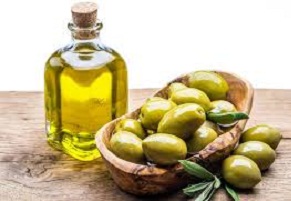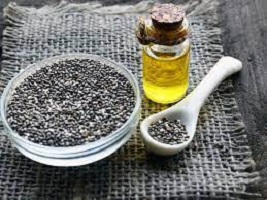Does Thyme Oil in Belly Button Help with Weight Loss?
Does Thyme Oil in Belly Button Help with Weight Loss?
Fact Check: Benefits derived from putting essential oils in the belly button are questionable

The claim: Putting different oils in your belly button has health benefits. These claims of applying oil to the belly button or navel to treat a specific condition are more or less folktales or myths that people believe to be true. They lack scientific support.
Essential oils, which are concentrated plant extracts, have been utilized for millennia to enhance psychological and physical well-being all over the world.
According to a May 22 Facebook post, applying various oils in and on the belly button can aid with ailments such as chapped lips, menstrual cramps, bloating, joint discomfort, and more.
Essential oils for the navel
The Navel (also known as the Belly Button): Our Navel is unquestionably beautiful! Our navel is the main point of our body since all of our veins are connected to it. The abdominal button is the source of all life!
We used to put a cotton swab soaked in alcohol in the newborns’ navels to lower their temperatures; now we know that with oil it works better.
Applying essential oils to the navel treats dry eyes, impaired vision, the pancreas, the heels, and chapped lips, maintains the face bright, and the hair healthier, and helps with knee pain, chills, lethargy, joint pain, and dry skin.
Does Thyme Oil in Belly Button Aid with Weight Loss? Overview
Some of the often-asked questions are: Does thyme oil in the belly button for weight loss truly work? How should thyme essential oil be used? Is thyme beneficial to weight loss?
If you’re one of those who ask such inquiries, you’ve come to the perfect place. “We have good news for you.” Remove all distractions, pay great attention, and take your time learning about the benefits of thyme oil in the belly button for weight loss.
It is tough to change habits and live a healthy lifestyle, but it is necessary for anybody who wishes to enhance their health and looks.
There are other partners in this war besides the well-known combo of healthy nutrition and physical activity. Essential oils are one of these.
What Is Thyme and What Is Thyme Oil?
Thyme, or thymus, is a mint family (Lamiaceae) herb that is widely cultivated from western Europe to southeastern Italy for the production of essential oil as well as its usage as a spice.
The thyme, like oregano, has antibacterial characteristics and can be used to treat respiratory diseases as well as as a digestive stimulant, among other things.
Thyme essential oil
Thyme oil is derived from the perennial shrub Thymus vulgaris. This herb, which belongs to the mint family, is used in cooking, mouthwashes, potpourri, and aromatherapy.
It is indigenous to southern Europe, ranging from the western Mediterranean to southern Italy.
The herb’s essential oils provide a variety of health benefits; in fact, these benefits have been recognized for thousands of years throughout the Mediterranean.
Thyme oil is antiseptic, antimicrobial, antispasmodic, antihypertensive, and relaxing.
Thyme oil is a powerful antioxidant that has been utilized as a medicinal herb since ancient times.
The thyme benefits the immune, respiratory, digestive, neurological, and other systems of the body.
It’s one of the greatest essential oils for hormones since it helps women with menstrual and menopausal problems by balancing hormone levels.
It also safeguards the body against potentially fatal diseases and maladies such as stroke, arthritis, fungal and bacterial infections, and skin issues.
Thyme’s Evolution ~ The History of Thyme
The Ebers Papyrus, the earliest Egyptian medical book, goes back to 1550 B.C. and chronicles the curative properties of thyme.
The ancient Egyptians employed thyme for embalming, while the ancient Greeks utilized it in their baths and temples because they felt it instilled courage.
Thyme was placed beneath pillows in the European Middle Ages to assist sleep and ward off nightmares; the herb was also strewn on coffins at funerals since it was considered to guarantee a safe passage to the next world.
So, let’s see “if thyme essential oil in the belly button for weight loss works.”
Does Thyme Oil in Belly Button Help with Weight Loss?
It is stated in the popular sector and the field of alternative medicine that it is possible to lose weight with the help of some thyme essential oil. Simply apply them to the abdominal button.
Before digging into this assertion, it is important to note that the existence of the Pechoti gland or any other anatomical mechanism that allows you to absorb oils through your belly button has not been scientifically established.
Despite this, some people are advised to use essential oil therapies to achieve faster results.
Essential oils, unlike cosmetics, are less expensive and can be used to assist in burning belly fat, decrease cellulite, or minimize water retention.
However, it is important to realize that there are no magic items; however, when paired with a healthy routine, essential oils can be very effective in decreasing weight, and fat, enhancing skin look, and cleansing the body.
Is Thyme Good for Weight Loss?
You’ve probably heard of thyme, even if you haven’t tasted it. Much used in antiquity for medicinal and other uses, such as lowering hunger while still supplying critical nutrients, boosting energy, and possibly reducing overeating and between-meal snacking.
Thymol, a key component of thyme, has been demonstrated in animal studies to reduce obesity caused by high-fat diets.
The thyme is still an excellent addition to the cuisine because it provides numerous health advantages.
Thyme Oil in Belly Button Benefits ~ The Uses of Thyme Oil for Health
Thyme oil advantages and applications
- The herb reduces stress by improving mood.
- Improves Skin Health
- Kills Bacteria and infections
- Treats Respiratory Disorders
- Promotes the health of the teeth
- It acts as a bug repellent.
- Improves Circulation
- Reduces Anxiety and Stress
- Hormone balance
- Fibroids are treated.
In addition to these nine scientifically proven benefits, thyme oil also:
- Inhibits gas production in the stomach and intestines
- Acts as a diuretic, aiding in the evacuation of toxins, salts, and extra water
- Improves memory and attention
- Helps to decrease cellulite
- Protects against hair loss
- Enhances vision
Next, we’ll show you how to use thyme essential oil.
How to Apply Thyme Oil
Thyme essential oil is extracted by steam distilling fresh thyme plant leaves and blossoms.
Pick a handful of fresh thyme, wash it, and pat it dry to produce your thyme oil. The herb should then be crushed using a mortar and pestle.
Once the leaves have been crushed and the natural oils have been liberated, combine them with 1 cup of carrier oil (such as olive oil or coconut oil) in a skillet over medium heat.
Heat the mixture for 5 minutes, or until it begins to bubble. When the mixture has cooled, keep it in a glass container in a cool area.
Here are some simple ways to include thyme oil in your daily routine:
- To relieve weariness, add 2 drops of thyme oil to a warm bath.
- Rub 2 drops of thyme oil with equal amounts of carrier oil on your abdomen to ease menstruation cramps.
- To use as a mouthwash, mix 2 drops of thyme oil into a glass of water and gargle.
- Inhale 2 drops of thyme oil or add it to hot water for steam inhalation to open congested nose passages.
- Add 5 drops of thyme oil to a warm foot bath to kill toe fungus.
- Apply 2 drops of thyme oil to the affected area to kill infections and rashes.
- Inhale or diffuse 2-3 drops of thyme oil daily to promote circulation.
Warnings Regarding the Use of Thyme Essential Oil
Thyme essential oil should not be applied to the skin directly because it can produce an allergic reaction.
It must first be diluted with carrier oil (such as olive, coconut, grapeseed, or almond oil). Before applying, test a small area to discover whether you are allergic to it.
Even though the branches are edible, thyme essential oil should not be consumed because it might cause nausea, dizziness, vomiting, diarrhea, and muscular issues.
It can also have a severe impact on the heart, lungs, and body temperature, as well as stimulate the thyroid gland, which is especially dangerous for persons with hyperthyroidism.
Side effects of thyme oil
You may be allergic to thyme and thyme oil if you have a mint allergy.
Thyme oil has caused the following side effects:
- Allergic responses such as contact dermatitis and hay fever symptoms
- Vertigo
- Blepharitis
- Headache
- Bronchitis
- Muscular wasting
- Stomach discomfort and irritation
Thyme oil should not be consumed or applied to the skin undiluted. Before using thyme oil, consult your doctor, especially if you are pregnant or breastfeeding.
Thyme oil should not be given to children. Consider children and dogs who may react to essential oils when diffusing them.

Does Thyme Oil in Belly Button Help with Weight Loss? The Bottom Line
The benefits of putting essential oils in your belly button are debatable.
Partially false.
According to our research, the concept that inserting essential oils in your belly button can provide health advantages is PARTLY FALSE.
Using essential oils on your skin can indeed help you feel better, especially when combined with a medical regimen.
However, outside of anecdotal stories and tradition, we found no scientific evidence that the Pechoti Method works.
The navel closes off once the umbilical cord is removed at birth, therefore putting diluted oils in your belly button would most likely have the same level of advantages as applying oil to any other portion of your skin, according to experts.
FAQs
The benefits of applying oil to your belly button
- Lubricant the veins.
- Alleviates stomach pains
- Menstrual cramps are relieved.
- Infection is removed.
- Oiling the navel keeps navel oranges at bay beyond the button fissures.
- The belly button is cleaned using navel oil.
You can keep a tiny drip jar with the necessary oil beside your bed and place a few drops in your navel before going to bed.
Clove Oil Benefits ~ What Is Clove Oil?
Clove oil is derived from the dried flower buds of the clove plant, also known scientifically as Syzygium aromaticum or Eugenia caryophyllata.
It has a wide range of potential therapeutic qualities and can be applied topically to relieve pain.
Benefits of Clove Oil
- Acne Treatment Possibility
- Has the ability to treat Candida infections
- Could Help with Teething Pain
- May Aid in Dental Care
- May Increase Sex Drive
- Possibility of antimicrobial properties
- Possibility of antibacterial properties
- Immune System Booster
What are the benefits of thyme oil in the belly button?
Thyme oil is antispasmodic, meaning it relaxes your arteries and veins, decreasing blood pressure and heart tension.
It may also assist in toning and strengthening your cardiac muscles.
Which oil should I put in my belly button to lose weight?
Applying coconut oil on the belly button regularly helps to relieve bloating.
Furthermore, the presence of medium-chain triglycerides in coconut oil results in belly fat reduction, which promotes fertility in women.
Lastly, oiling the belly button cleanses the blood and eliminates blemishes and dark patches.
Is thyme oil beneficial for weight loss?
A 2015 study found that thyme extracts may help lower body fat mass and hence indirectly aid in weight management.
The polyphenols present in thyme are thought to interact with particular hormones that govern metabolism, resulting in increased fat burning within the body.
What happens if you start rubbing oil into your belly button?
Because the center of the belly button, also known as the Manipura Chakra, is linked to the central nerve system, rubbing oil can increase mental clarity, alleviate mental pressure, and build confidence, strength, and compassion.
Does putting oil in the navel cause pink lips?
The navel is directly connected to the umbilical cord.
It has been discovered that applying oil to the navel results in soft, pink lips. This procedure may also improve the appearance of the skin.
Is it safe to use oil to clean your belly button?
You can also attempt a hot oil massage to get rid of the obstinate filth in your belly button. Oil will help lube the naval region, making it easier to remove the collected dirt.
Simply massage your naval with heated coconut oil in clockwise and anticlockwise directions.
How do you clean your belly button once it has been oiled?
How to Clean Your Abdominal Button
1. Gently wipe the surfaces inside your belly button with a cotton swab dipped in rubbing alcohol.
2. Once the cotton swab is clean, flush the alcohol out of your belly button with a fresh one dipped in water to avoid drying your skin.
The advantages of thyme oil in the belly button
Thyme oil is antispasmodic, meaning it relaxes your arteries and veins, decreasing blood pressure and heart tension.
It may also assist in toning and strengthening your cardiac muscles.
Castor oil in the belly button for lose weight
Aside from alleviating constipation, no research suggests that castor oil can help with weight loss, either directly or indirectly.
Belly button oil Chart ~ What oil do I put in my belly button for weight loss?
Weight loss with ginger drainage oil
To get a slimming effect, apply the cream on the belly button and allow it to absorb. You can put it in a humidifier or water, or use essential oils to massage your body.
Internal Dosage of Thyme Oil
Internal Dosage & Dilution Before using Cassia, Cinnamon, Clove, Cumin, Oregano, and Thyme essential oils, always dilute them in at least four ounces of water.
You can also dilute these oils before using them by adding one to two drops to a recipe or beverage.
Weight loss with coconut oil in the belly button
Applying coconut oil on the belly button regularly helps to relieve bloating.
Furthermore, the presence of medium-chain triglycerides in coconut oil results in belly fat reduction, which promotes fertility in women. Oiling the belly button cleanses the blood and eliminates blemishes and dark patches.
The benefits of putting coconut oil in your belly button
The natural anti-fungal qualities of coconut oil can assist in lowering the risk of infection in your belly button.
Also, coconut oil is a natural anti-inflammatory that can help to lessen the redness, swelling, and pain associated with a swollen belly button.
Side effects of applying castor oil to the belly button
Castor oil is a powerful and concentrated chemical that can produce irritation, redness, itching, or a rash when applied directly to the skin, particularly the belly button.
Before putting it to the belly button, perform a patch test on a tiny area of skin.


